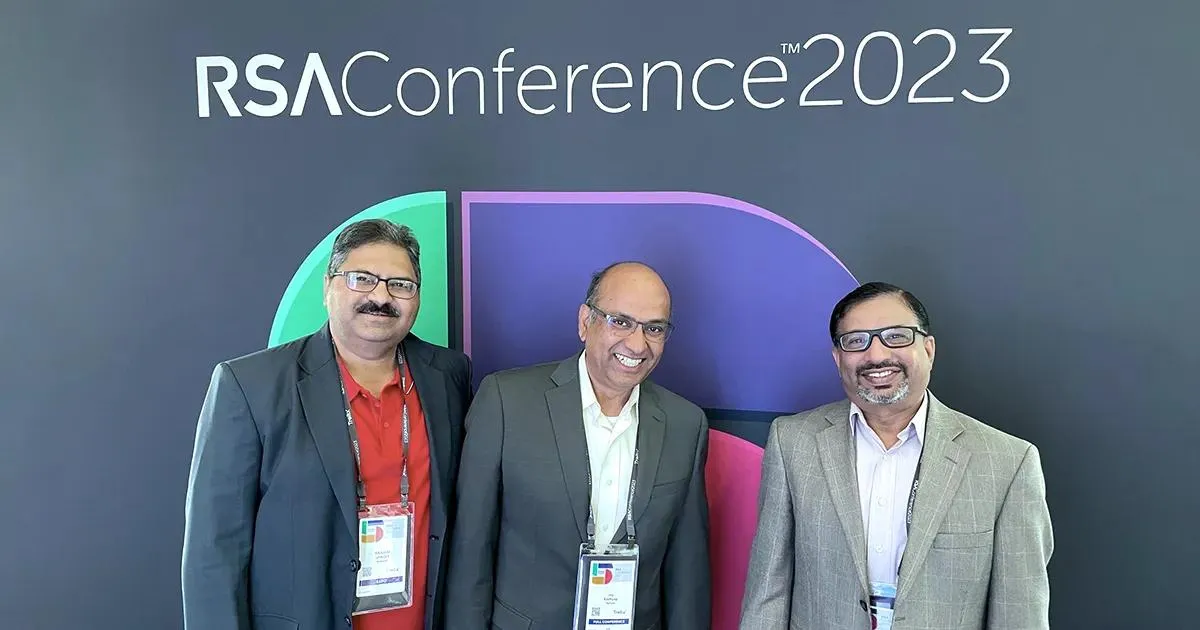



2020 and 2021 witnessed the growing demand for two major things — a robust healthcare system and a highly secured business infrastructure. Traditionally, the healthcare industry has been seen as a digital laggard due to its hesitancy to embrace technology-driven solutions. Security concerns and regulations like HIPAA were cited as the primary reason for the slow adoption. However, the pandemic changed the entire landscape. Telehealth and virtual visits have increased. 81% of healthcare executives confirm that the pace of digital transformation has increased in their organization.[1] Medical apps witnessed a 53% surge in usage in Q2 2021.[2]
While this spells good news on the digital front, healthcare companies must also be mindful of the increasing cyber-attacks on enterprises across sectors.
Data breaches have become so common that only 33% of patients seem to trust hospital networks to safeguard their personal details. 49% of them said they would switch the provider if they found their data was compromised due to ransomware.[3]
Clearly, the healthcare industry needs to strengthen its application’s security.
Here’s what independent software vendors (ISVs) can do to help healthcare companies secure their healthcare apps.
How To Make Healthcare Apps Safer?
-
Know the Security Posture
After a period of concern, cloud-based applications are now inherently secure. However, it's essential to evaluate the overall security posture to check if the protocols and security controls can act and respond during and after the attack. Cybercriminals seem to be always a step ahead. They are using sophisticated, automated tools to identify vulnerabilities across digital endpoints, networks, and the edge. Hence, healthcare companies must regularly review their security policies, processes, technologies, and architecture. This will help them to detect vulnerabilities at an early stage and address them in time. Healthcare companies must also proactively create an incident management plan to stay prepared to mitigate risks quickly.
According to the ISO 27001 mandate, the end-users must also attend security awareness training. Hence, companies must customize their security training programs and check routinely if the end-users adhere to the security policies. This will help in building a company-wide commitment towards application security.
-
Automate the Security Implementations
According to the Wall Street Journal, in 2020, more than one million people were affected by data breaches at healthcare companies almost every month.[4] To add to the woes, modern cyber-attacks are mostly automated. Given the increase in the volume of threats, healthcare companies have to use automation to keep pace and prevent attacks and breaches on time. If the threat has already entered the network, automation can help quickly analyze the problem across the network and address it.
Automating the security implementations can help healthcare companies improve the incident response time by 80%.[5] The Cybersecurity and Infrastructure Security Agency (CISA) has recently mandated companies to secure all mobile devices to allow users to access the company resources safely.[6] They have recommended that companies configure Enterprise Mobility Management (EMM) / Mobile Device Management (MDM) systems to update the latest version of the software and patches in the mobile device. Healthcare companies must also consider automating just-in-time access management to improve turnaround time, auto-scale access, secure credentials, and provide an audit trail to control access management across single, hybrid, or multi-cloud environments.
-
Manage the Security Operations
The increasing cyber-attacks and complexity of compliance regulations have overwhelmed the IT department and made it hard for them to stay compliant. There is an urgent need for advanced threat detection and response services within healthcare companies. One way to address this is by establishing a managed security operations center (SOC) within the company. The SOC can monitor the network traffic, logs, and security events to detect threats early and ensure timely threat detection 24/7.
Managed security operations can also help companies identify the vulnerabilities in new contracts and ensure that the right services and technologies are used. It will help in establishing a communication and responsibility matrix to streamline communication and ensure transparency in operations. Continuous monitoring and testing will ensure that the company is prepared for all types of threats and save unnecessary expenditure caused due to cyberattacks. Building application security is not a one-time activity. Companies can augment their security operations by partnering with managed security service providers. This will help them take pre-emptive measures to prevent attacks on applications and safeguard patient data.
Conclusion
A digital-first approach is an ideal solution for healthcare companies in order to thrive in the future. However, they also need to be careful about safety, data security, and compliance needs. ISVs that build healthcare apps must understand this unique position of the healthcare industry and strike a balance between innovation and security of applications.
At Xoriant, we help ISVs build secure healthcare applications that comply with FDA and HIPAA regulations. From building an entire tech stack for a health insurance plan aggregator to developing and testing embedded software for one of the world’s leading medical device manufacturers, we develop end-to-end secure, cutting-edge healthcare technologies.
Want more insights on Security? Listen to our recent Xoriant-Crowdstrike partnered webinar on A CISO’s Journey in Defending Against Modern Identity Attacks
Is application security a top initiative for your business in 2022?
Talk to Xoriant Security Experts
References:
[3] Hipaajournal.com
[4] Forbes.com
[5] Sumologic.com/
[6] Tufin.com





 View Previous Blog
View Previous Blog




